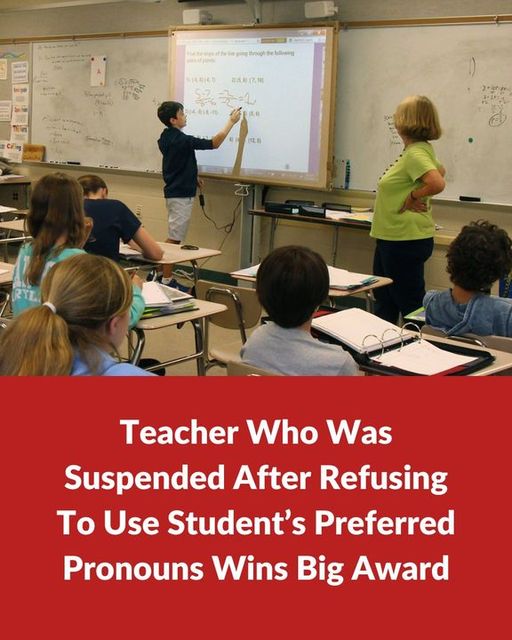
The world has certainly changed in recent years. Some people consider it progress, but others feel that it is a giant step backward.
This includes Pamela Richard, a Kansas teacher who stood up for what she believed in, despite the possibility she could be suspended for it. She was working at Geary County Schools in Kansas at the time, and was suspended for three days because she would not use a preferred pronoun for one of her students.

Richard describes the situation in simple terms, saying she was suspended “for addressing a biologically female student by the student’s legal and enrolled last name.”
Prior to this, a school counselor had told her one of the students preferred to use a different first name than their legal name. They also wanted to be referred to as a different gender. This student was born as a female.
In order to avoid using the student’s preferred name, she would refer to her as “Miss [legal/enrolled last name].” Richard felt this was a good compromise but it didn’t work out.
Eventually, the teacher was suspended, with the explanation that “employees should be aware and make an effort to utilize the pronouns an individual requests to be identified by.”
The lawsuit that then took place occurred because the policy violated her conscience.

“Ms. Ricard is a Christian and holds sincere religious beliefs consistent with the traditional Christian and biblical understanding of the human person and biological sex,” the lawsuit stated. “Ms. Ricard believes that God created human beings as either male or female, that this sex is fixed in each person from the moment of conception, and that it cannot be changed, regardless of an individual person’s feelings, desires, or preferences.”
The teacher went to federal court in May and won a $95,000 award. The attorney said that she was “free to speak without violating her conscience by communicating with parents in a manner consistent with how she is required to address the students at school.”
She was also allowed to avoid pronouns for students that were not consistent with their biological sex. In the policy, staff members were not able to disclose the preferred names of the students or the pronouns to their parents. The court ruled against that policy.
There have been no comments from the school since the lawsuit.
Leave a Reply